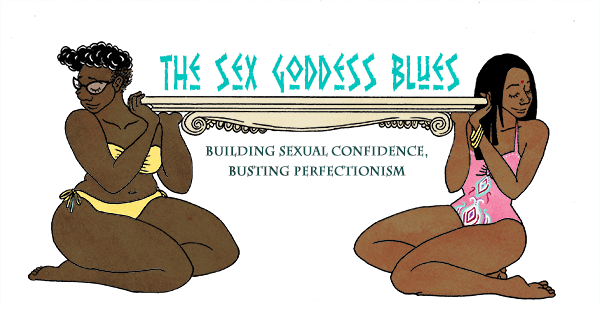I think it’s difficult to navigate sexuality as girls and women in the world today. Every dimension of our sexual selves is impacted by our current world and by history, both of which have had an awful lot to say about it, and usually pretty loudly. Shame, all sorts of expectations, beauty standards, media, social roles, and labels loom large in the development of our sexual selves, and can trip us up a whole lot. We can feel like we have no idea what’s happening within our sexual selves; like we don’t even know what we want, let alone how to ask for it from a partner. In fact, often enough, women will feel like we know more about a partner’s sexuality (especially if that partner is a man) than we do about our own.
Women also hear a lot about self-respect, but generally, women are not taught to think much about self-love, self-respect, and self-care as they pertain to our own sexualities. Many of us struggle with a lot of insecurity, shame and self-doubt, no matter what sexual choices we do or don’t make.

Feel like you haven’t quite found your footing in the bedroom yet? Join the club. Exploring sex and sexuality is a lifelong process; it’s impossible to ever have it all figured out, especially right out of the gate. It’s also hard to feel confident about something shiny and new, whatever it is, especially something as complex and loaded as sex. Those who act like they know everything don’t. Some people might have more sexual experience under their belt than others, but that doesn’t mean they know everything. Nobody does. Sex is different for everyone, and everyone has different preferences. There’s no way to be universally “good” at sex, or to know all there is to know about it. There is no strategy or set of skills bound to blow away any partner you’ll ever have in your life.
The thing most likely to give your sex life a boost – and to help you feel boosted in it and your own sexual self – is confidence: feeling strong and positive about whatever you’re doing, however you’re doing it, what you may look like while you’re doing it, and who you’re doing it with.
Demystifying “confidence”
You’ve probably heard before that confidence is the key to getting what you want in life. Applying for a job? Just be confident! Asking someone out on a date? Confidence is the most attractive trait! Wondering if you can pull off that weird gold skirt you found at the thrift store? You sure can, as long as you wear it with confidence! You go, girl!
Unfortunately, confidence isn’t something you just decide to have and then possess without question. It’s not like you read an article on confidence or self-acceptance and say, “Wow! I’d never thought about it like that before. I feel great now. Farewell, personal hangups! Look out world! Here comes my most authentic self! I’m amazing, and I don’t care what you say!” Would that it were that simple.
For those of us who’ve struggled with our self-esteem, the concept of confidence is perpetually frustrating. What does it even mean, and how is anyone supposed to get there with so many obstacles in the way?
Gaining confidence in yourself is a lifelong process. It’s sometimes a long and winding road with potholes, roadblocks, and even massive collisions. Even the most confident among us have good days and bad. No one feels like a badass 100% of the time. The most realistic option is to get some basic level of confidence to build on. The best place to start is to know that you, as a person, are worthwhile. You’re worth fighting for; you deserve good things in your life. You deserve to set goals for yourself. You deserve healthy relationships that make you feel good. You deserve to have your voice heard. You deserve to physically present yourself however you want. You deserve to feel at peace with your body. And, if you’re interested in sex, be it by yourself or with partners, you deserve pleasure and joy.
